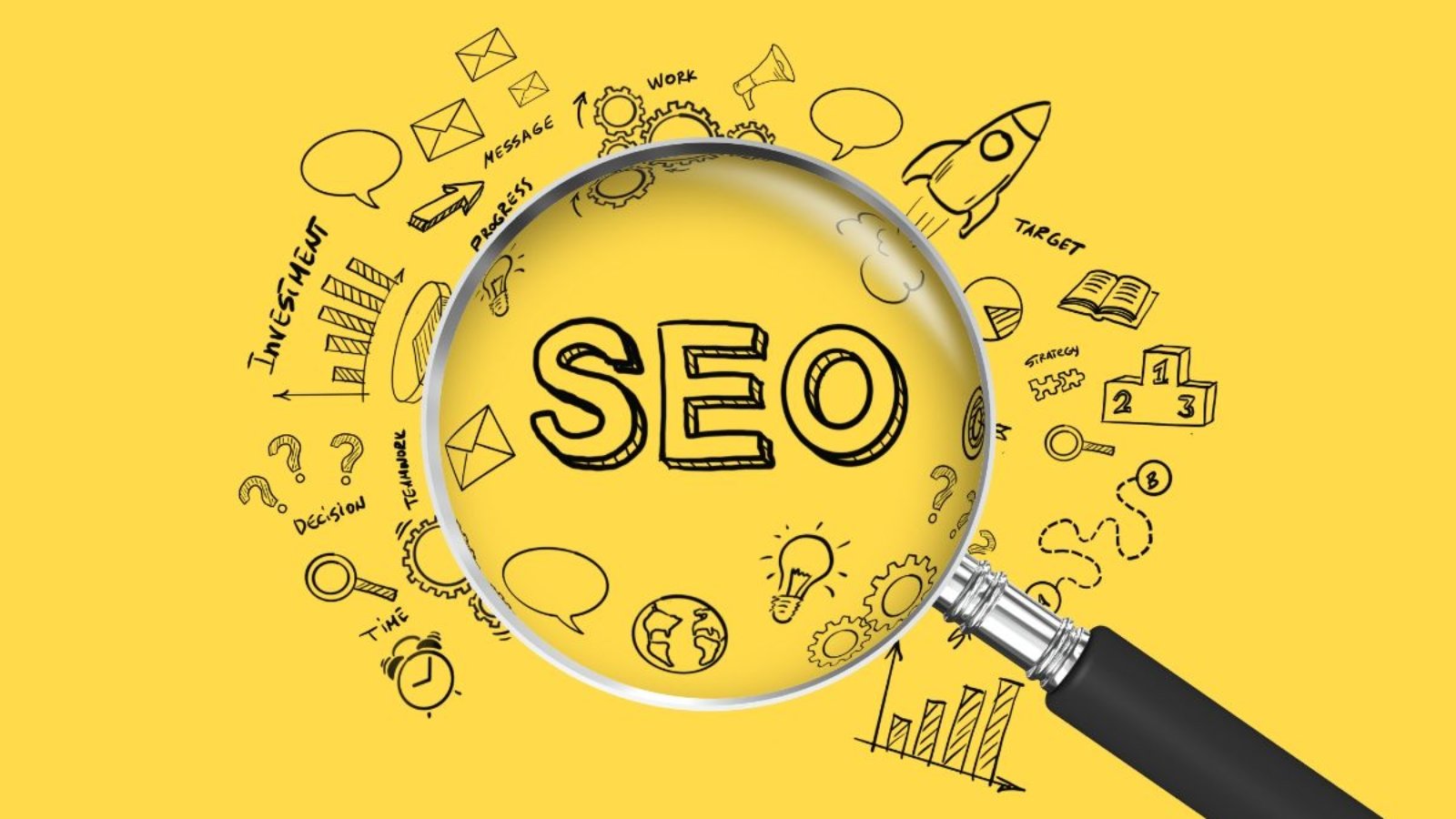In the digital marketing landscape, SEO (Search Engine Optimization) plays a crucial role in ensuring online visibility, traffic, and ultimately conversions. However, the strategies for optimizing websites are not one-size-fits-all, especially when it comes to businesses that target other businesses (B2B) versus those targeting consumers (B2C). Understanding the differences between B2B SEO and B2C SEO is essential to crafting effective marketing strategies that cater to the distinct needs of each audience. In this article, we’ll dive into the key distinctions between these two SEO approaches, their unique challenges, and how you can optimize for success in either market.
What is B2B SEO?
B2B (Business-to-Business) SEO refers to the practice of optimizing a website or online presence for a business that primarily sells products or services to other businesses. The goal is to attract decision-makers, managers, or executives within other companies who are looking for solutions that will benefit their organizations. This often involves longer sales cycles and larger contracts, making the SEO approach highly specialized.
What is B2C SEO?
B2C (Business-to-Consumer) SEO, on the other hand, focuses on optimizing websites that target individual consumers. Whether it’s an e-commerce store, a service provider, or a brand looking to build customer loyalty, the goal of B2C SEO is to capture the attention of a broader, often more impulsive audience. The decision-making process in B2C is typically faster, and the focus is more on emotional triggers and direct benefits to the consumer.
Now that we have a basic understanding of what B2B and B2C SEO entail, let’s explore the key differences between the two in more detail.
Most Common Differences Between B2B SEO and B2C SEO
When comparing B2B SEO and B2C SEO, many differences emerge that shape how each strategy is implemented. These differences go beyond just targeting a distinct audience; they impact every aspect of SEO, from keyword selection and content creation to the sales cycle, link-building strategies, and performance metrics. Understanding these critical distinctions is essential for tailoring your SEO efforts to effectively engage and convert either businesses or consumers, ensuring that your marketing strategy resonates with the right decision-makers. Let’s explore these key differences and how they influence your overall approach.
1. Audience and Buyer Intent
The most obvious difference between B2B SEO and B2C SEO lies in the target audience. B2B buyers are usually professionals, business owners, or decision-makers looking for solutions that can help their business. These individuals are more likely to engage in extensive research before making a purchase. Therefore, the content in B2B SEO often focuses on offering in-depth information, case studies, white papers, and product demos.
In contrast, B2C buyers are individual consumers looking for products or services that fulfill personal needs. Their decision-making process is generally faster and driven more by emotions, price sensitivity, and social proof. B2C SEO content tends to focus on product descriptions, reviews, tutorials, and lifestyle-oriented blog posts.
For example, a B2B SEO campaign might focus on keywords like “enterprise software solutions” or “business process automation tools,” while a B2C SEO strategy might target “best smartphones” or “affordable gym memberships.”
2. Keyword Strategy
One of the significant differences between B2B SEO and B2C SEO is how keywords are selected and targeted. In B2B SEO, the keywords are often niche-specific and feature long-tail search terms. The focus is on attracting fewer, but higher-quality, visitors who are more likely to convert into business clients. B2B keyword research emphasizes industry jargon, technical language, and specific business needs. Keywords such as “cloud-based ERP software” or “industrial supply chain management” may have lower search volumes, but they attract a more targeted audience.
B2C SEO, by contrast, typically relies on broader, high-volume keywords that target a more extensive audience. These keywords may be competitive, but they bring in large amounts of traffic, which is often necessary for businesses that rely on high sales volume. B2C keyword research focuses on consumer-driven terms like “best running shoes” or “cheap online groceries.”
3. Content Strategy
In B2B SEO, the content is often longer, more detailed, and aimed at educating the target audience. B2B buyers prefer content that helps them make informed decisions. This could include white papers, detailed guides, case studies, and industry reports. The goal is to build trust and authority while addressing pain points specific to the business sector. The content is usually designed to appeal to logical decision-making rather than emotional impulses.
For B2C SEO, content needs to be concise, engaging, and tailored to quick decision-making. Blog posts, product descriptions, and videos are popular formats. B2C content often appeals to emotions, focuses on immediate benefits, and may include a call to action that encourages a quick purchase. Product recommendations, seasonal guides, and discount promotions are common in this space.
4. Sales Cycle
Another critical difference between B2B SEO and B2C SEO is the length and complexity of the sales cycle. B2B sales cycles are typically much longer, often involving multiple stakeholders and layers of decision-making. As a result, the SEO strategy needs to account for nurturing leads over time through multiple touchpoints. In B2B SEO, a strong emphasis is placed on lead generation through gated content, email marketing, and nurturing campaigns that keep prospects engaged over an extended period.
In B2C SEO, the sales cycle is often shorter, sometimes even immediate. Consumers may make a purchasing decision after reading just a few reviews or comparing prices between competitors. Therefore, the focus is on driving immediate conversions with engaging content, persuasive calls to action, and compelling offers.
5. Link Building and Authority
Link building is essential in both B2B and B2C SEO, but the approach differs significantly. In B2B SEO, the goal is to establish thought leadership and authority within a specific industry. This means earning links from highly authoritative industry blogs, publications, and forums. B2B companies often aim for backlinks from trusted sources, such as industry associations, trade journals, and other businesses.
In B2C SEO, link building focuses more on popular blogs, news sites, influencers, and social media platforms. While authority is still important, the emphasis is often on visibility and virality. B2C link-building strategies might include partnerships with influencers, bloggers, and content creators who can promote products to a large, engaged audience.
6. SEO Metrics and KPIs
The metrics and KPIs (Key Performance Indicators) that matter in B2B SEO differ from those in B2C SEO. In B2B, key metrics often include lead quality, lead conversion rate, and the number of downloads for gated content like white papers or e-books. Metrics such as the time spent on site and the number of repeat visits are also valuable indicators of how well the SEO strategy is nurturing leads.
In B2C SEO, metrics are more likely to focus on overall traffic volume, conversion rates, average order value, and customer lifetime value. The goal is to measure how well the website attracts and converts visitors into paying customers, often through e-commerce or service bookings.
7. Paid Search and Retargeting
While both B2B and B2C SEO benefit from the integration of paid search strategies like Google Ads or social media ads, the tactics used differ based on the audience. B2B SEO often integrates with LinkedIn Ads or highly targeted Google Ads campaigns that focus on niche search terms. Retargeting plays a critical role in B2B as well, given the longer sales cycles and need to stay top-of-mind for potential clients over time.
B2C SEO, on the other hand, may rely more heavily on broad-based Google Shopping ads, Facebook and Instagram ads, and influencer partnerships to drive immediate purchases. Retargeting also plays a role in B2C, but the aim is to bring consumers back for quick conversions rather than nurturing them over months.
Find the Best SEO Service Provider
When it comes to optimizing your online presence, finding the best SEO service provider is crucial for achieving lasting results. At Full Site Services, we specialize in delivering professional SEO solutions tailored to your business’s unique needs. Our expert team focuses on driving organic traffic, improving search engine rankings, and boosting conversions with proven strategies. Whether you’re looking to target local customers or compete in a broader market, Full Site Services offers comprehensive SEO services that ensure your website is fully optimized for success. Let us help you achieve top visibility and outperform your competition.
Conclusion
Understanding the differences between B2B SEO and B2C SEO is essential for crafting an effective digital marketing strategy. While both approaches aim to boost visibility, attract traffic, and drive conversions, the tactics differ significantly depending on the target audience. B2B SEO is about building trust, nurturing leads, and offering detailed, informative content, while B2C SEO focuses on driving quick decisions, appealing to emotions, and targeting a broader audience.
To succeed in either space, it’s crucial to tailor your SEO strategy to the specific behaviors, preferences, and decision-making processes of your target market. Whether you’re targeting businesses or consumers, a well-executed SEO plan can significantly improve your online presence, helping you reach the right audience with the right message at the right time.


Add a Comment